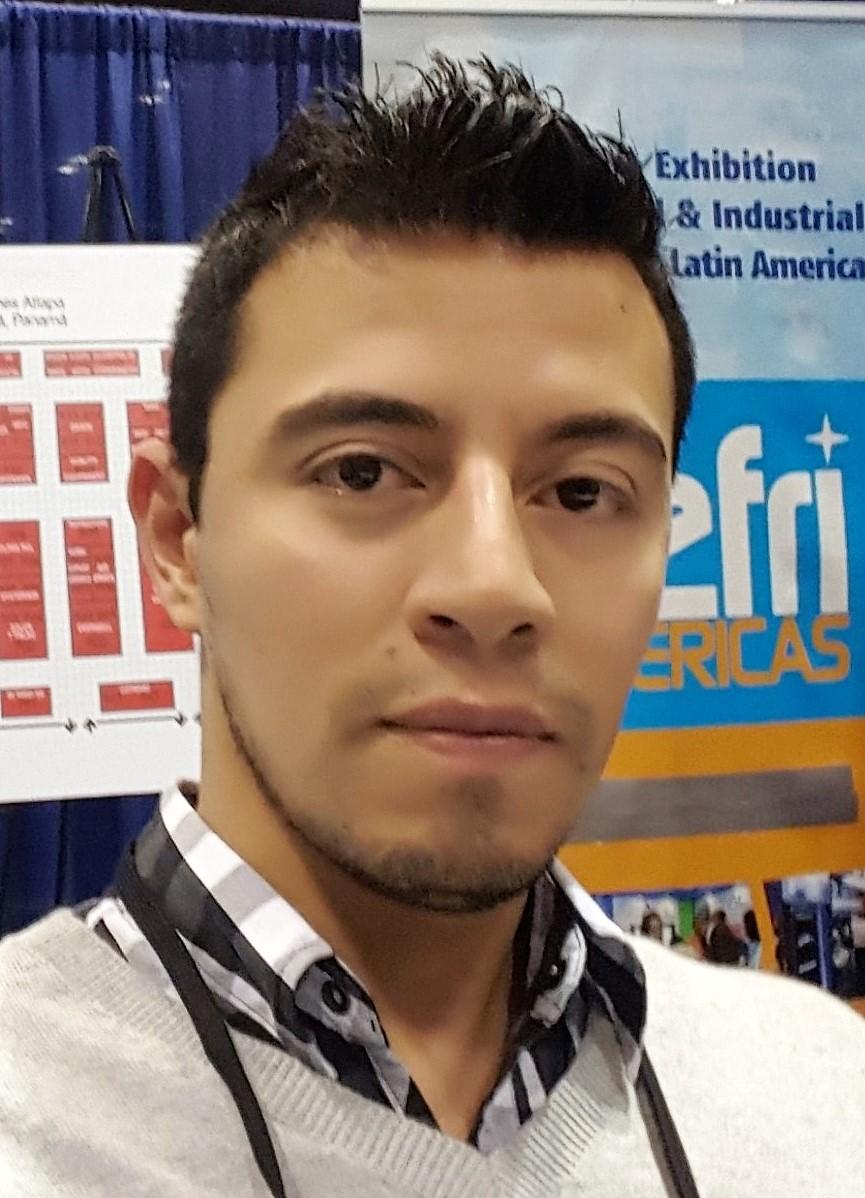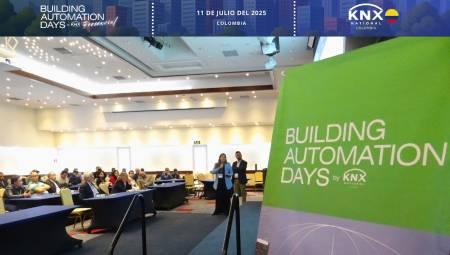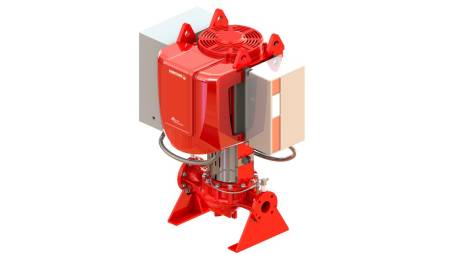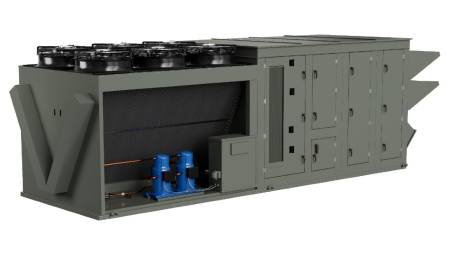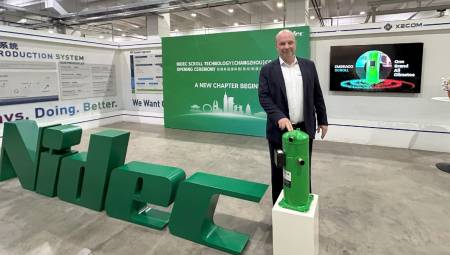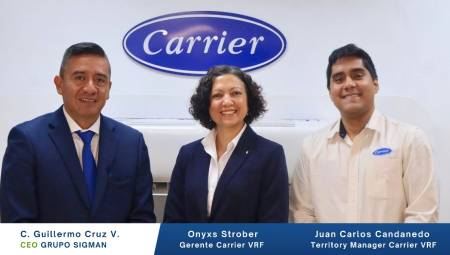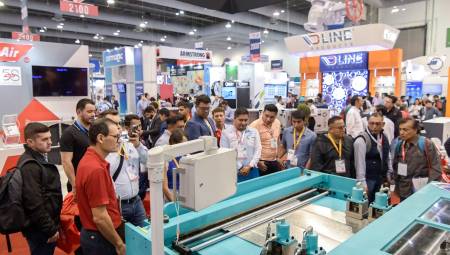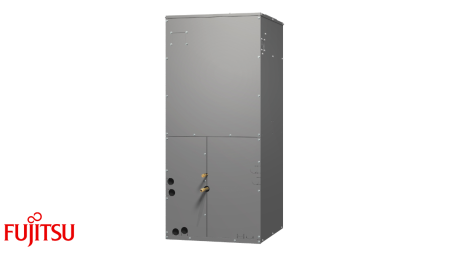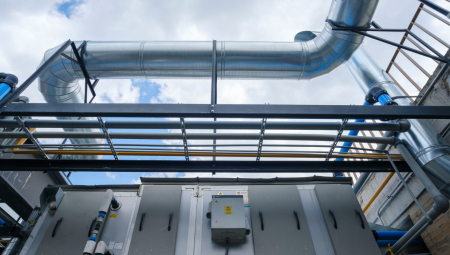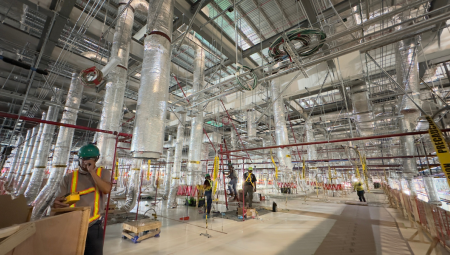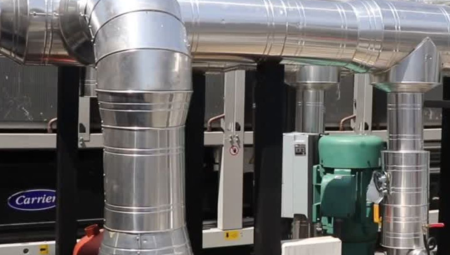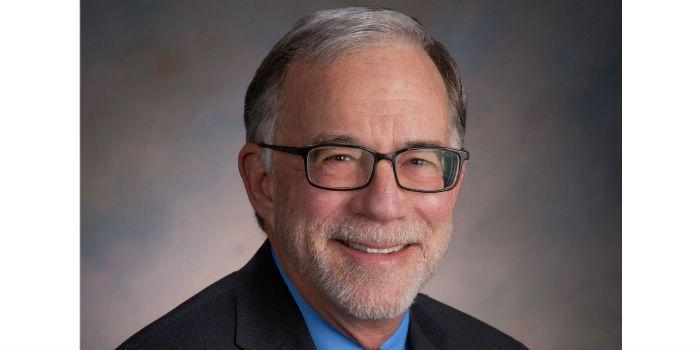 Tim Wentz is the current president of ASHRAE, we spoke with him to learn about the projects planned for his period as leader of the Society.
Tim Wentz is the current president of ASHRAE, we spoke with him to learn about the projects planned for his period as leader of the Society.
by ACR Latin America
ACR LATINOAMÉRICA once again had the opportunity to interview the maximum representative of lASHRAE: Tim Wentz, certified as a Professional in High Performance Building Design (HBDP).
Tim is a faculty member of the University of Nebraska-Lincoln's Durham School of Architectural and Construction Engineering. As president of ASHRAE, Wentz chairs the Society's Board of Directors and Executive Committee.
Wentz was awarded a Bachelor of Science in Mechanical Engineering and a Master of Business Administration from the University of Nebraska. Prior to entering academia, Wentz spent 19 years as a mechanical contractor, developing expertise in mechanical design management, estimating, and construction of commercial projects throughout the Midwest.
ACR Latin America: What does it mean to you to be the new leader of ASHRAE?
Tim Wentz: I don't have the words to convey what a great honor it is to be the president of an organization like ASHRAE with its thousands of members in so many countries. The best part is having the opportunity to meet so many people from all over the world and hear about their projects, including problems and solutions. This shows that we all face the same global problems no matter where we live. And that we all strive towards the same goal – improving the built environments in which we work, live and play.
ACR: What are your main challenges and projects?
Tim Wentz: Our theme this year as a Society: Adapt Today to Shape Tomorrow, is based on the goal of adapting included in the Society's Strategic Plan. I relate this goal to moving from a slide rule in my early college days to a handheld calculator and now to a computer or smartphone, as an example of the inherent challenges and opportunities in adapting to new technologies.
All of us have had to come face to face with the challenges of adaptation. It is in the power of adaptation in which lives, organizations and communities are transformed. Our ability to shape tomorrow is born out of our willingness to adapt today. Together, we can create our future by adapting our resources, investments and technology to form a more sustainable world.
I have three strategic guidelines for this year, each of which is compatible with several initiatives:
- Adapt ASHRAE resources to help expand members' knowledge and develop the visionaries of tomorrow. Initiatives in this guideline include the creation of an ASHRAE university education platform; implementing new courses, annotations and certificates that enable members and others with cutting-edge knowledge to propel our industry to a higher level of performance; implementing an internship program.
- Adapt ASHRAE investments to energize chapters and engage members. Initiatives include the creation of an opportunity fund per chapter to enable chapters to improve their communities; forming an ASHRAE Leadership Academy so that our future leaders can learn about and share best practices; adopting our Energy Quotient in Buildings program for use by student branches.
- Adapt ASHRAE technology to produce an immediate and direct benefit to members and society. Initiatives include the creation of a portal connecting ASHRAE technical content to members; developing application guides written specifically for the practice of professionals; and expanding access to standards, manual content and guides through applications.
I know it's quite a lot of big projects. However, our volunteers are already busy at work, determining the best way to achieve our goals. They recognize the importance of adaptation.
ACR: What is ASHRAE doing well and what needs to be improved to keep it growing?
Tim Wentz: ASHRAE has a strong history when it comes to providing guidance and resources to the industry, particularly through our publications, including our standards. As a volunteer-run society, we have the great advantage of using practicing professionals to produce our products in a very open and transparent manner. Because of this approach, ashrae's integrity and quality is unmatched. We continue to produce books and standards that are the backbone of the industry, such as our Manuals, and standards such as asHRAE/IES 90.1-2016, the Energy Efficiency Standard for Buildings Except Low-Rise Residential Buildings.
We are building on our foundation with guidance that expands from our traditional HVAC/R discipline, such as the ANSI/ASHRAE Standard 90.4-2016, the Energy Standard for Data Centers, and the ANSI/ASHRAE/NEMA Standard 201-2016, Facility Smart Grid Information Model. These types of products recognize that HVAC/R encompasses much more than just heating and air conditioning.
To ensure that we continue to grow, we are carrying out the initiatives I have listed above. This will help provide more programs, products and services to a wider range of people. Being more global allows us to better serve our members and more effectively address the sustainability issues that bind us all together.
One of the challenges we will address this year is how to address these global needs at the local level. How can we tailor resources so that our members benefit no matter where they reside?
ACR: Where is the HVAC/R industry headed?
Tim Wentz: I see three major areas of focus for the industry: technology (often reflected in data acquisition and use), an integrated systems approach, and a focus on building performance, all of which go hand in hand.
Our industry is working hard to ensure that buildings are sustainable and energy efficient. This is why ASHRAE and others have developed tools to help with commissioning, recomissioning, and performance metrics. Energy audits are also crucial, and ASHRAE's "Procedures for Commercial Building Energy Audits" ensure that recommendations are cost-effective, technically feasible, maintain safety and comfort, and result in significant energy savings.
One way to improve performance is by using data. From regulations to details about how systems work, we have access to a lot of information. How do we analyze and put to use the data that is being driven by the use of systems and equipment? Data is being generated and our industry needs to determine how to best use that data for product improvement, system support and training.
Another area of performance is refrigerants. This is a big problem for our industry when we look for ways to transition to new refrigerants. ASHRAE recently put on sale for the first time a series of research projects that will establish a stronger database on the properties and use of flammable refrigerants.
The program involves nine research projects, which are expected to be completed during 2017 with the final results available by the end of 2017. The results of the projects will be used to update the standards and codes that will govern the safe use of flammable refrigerants.
ACR: How can Latin America help you achieve your goals?
Tim Wentz: Currently, ASHRAE has about 1,200 members in Latin America, six chapters and five sections. The Latin American ASHRAE community has been adapting its customs to use ASHRAE best practices for over 16 years. They are helping to carry out the directives I mentioned earlier and also in the Society's Strategic Plan.
The problems we face are clearly global, but the solutions will have to be local. ASHRAE is committed to ensuring that all of our members in Latin America have the tools they need to create these local solutions to our common global problems.
Latin America is well represented in ASHRAE programs, awards and standing and grassroots committees, as well as on the Board of Directors. The Latin American chapters/sections, under the direction of Region XII Director and Regional President Dan Rogers, are providing superlative programs, seminars and congresses that disseminate ASHRAE and industry technology. I applaud the strong participation of our members in Latin America.
ACR: What do you think of the amendment to the Montreal Protocol concerning the phase-out of the production and use of HFCs?
Tim Wentz: I congratulate the governments involved in the adoption of the HFC amendment in the Montreal Protocol. As I noted in a previous question, flammable refrigerants hold great promise for reducing the use of HFCs in refrigerants and thus reducing the environmental impact of air conditioning and refrigeration systems.
Our preliminary research also indicates that flammable refrigerants will increase the energy efficiency of our air conditioning equipment. ASHRAE applauds the Kigali Amendment and is pleased to be a partner in cutting-edge research to better understand how to safely deploy flammable refrigerants.
Note: We thank the Colombia Chapter of ASHRAE, and its president José Luis Correa, for their support in conducting this interview.


